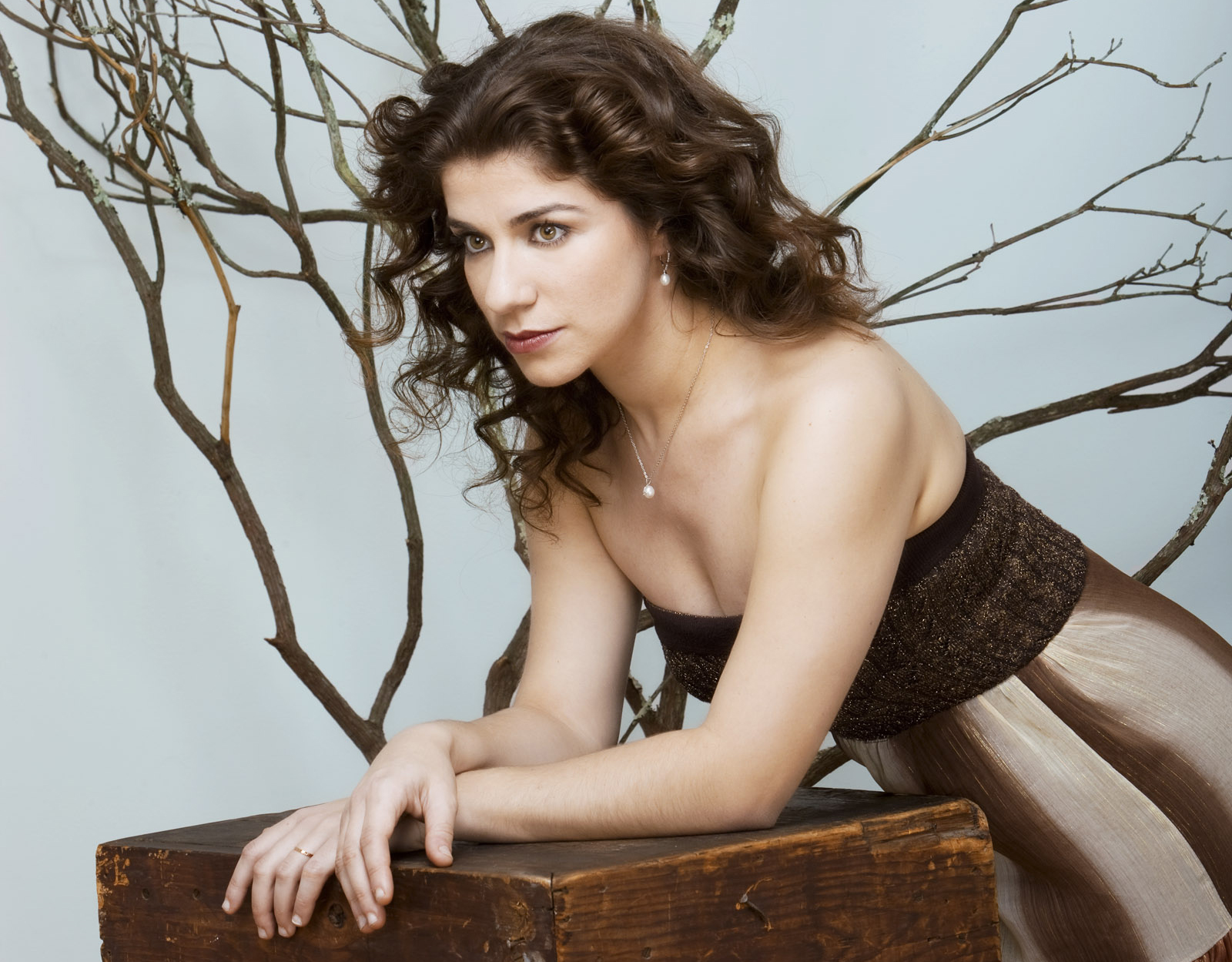Concert pianist joins faculty

UCLA’s newest professor of piano, Inna Faliks, practices both classical and contemporary forms of piano, and will perform at Schoenberg Hall this Friday.
By Garrett Anglin
March 10, 2013 11:12 p.m.
Inna Faliks has had a love for the piano since before she was 5 years old. It solidified her parents’ decision to leave the Soviet Union, not only to escape oppression but also to give their daughter the opportunity to pursue the passion with which she had grown up.
That passion is just what UCLA’s newest concert pianist and professor of piano will showcase at Schoenberg Hall this Friday. During her debut recital at UCLA, Faliks will play pieces by Ludwig van Beethoven, Robert Schumann, Arnold Schoenberg and Rodion Shchedrin.
Faliks, whose moving trucks arrived from New York only recently, began teaching at UCLA at the beginning of the academic year. However, Faliks said her biggest move came when she was just a child.
Born in Odessa, Ukraine, Faliks came to the United States in the late 1980s as part of a wave of Jewish immigrants who left the Soviet Union to find freedom from racial prejudice and anti-Semitism.
“Unfortunately, it was a reality for so many people who lived (in the Soviet Union) to live in a way that’s unimaginable to most people here,” Faliks said. “So, my parents wanted a better life, a life where I could become a concert pianist and really achieve all that I deserved. It was just a very memorable and brave thing for my parents to do.”
Growing up in a musical family, Faliks said piano has been a part of her life since before the age of 5.
“Pianists start early. My mother was a pianist and she was my first teacher. Music has always been in my family, as have books and poetry. I started in Odessa when I was 4 and it’s just always what I did,” Faliks said. “I never wavered from that path. I never questioned (that purpose).”
Faliks’ early love for the piano laid the foundation for her career as a concert pianist. She now plays shows all over the country including New York, Los Angeles and Chicago. She recently came back from a performance in Paris, where she played many of the pieces she will showcase at UCLA.
As a pianist, Faliks does not restrict herself to classical compositions. Robert Winter, a distinguished professor of performance practice and presidential chair in music and interactive arts, said Faliks’ excellence in piano stems from her passion not only for classical music, but for contemporary forms of piano as well.
“Most pianists tend to be troglodytes, persons mired in the past, a very conservative kind of artist. They play the canon, from Bach to Brahms,” Winter said. “She plays the canon as well as anybody, but she’s just as interested in new ways of bringing the piano to life. In fact, in her audition she played a piece by a Ukrainian composer who had written a piece for her.”
However, Faliks said piano is not her only passion. Poetry, writing and progressive forms of expression have also defined Faliks’ career. For the past five years, Faliks has worked on a live performance series called “Music/Words” that runs in New York and airs on the radio in Chicago as well. In the series, Faliks invites contemporary poets to read their works while solo musicians play music.
Walter Ponce, a professor of piano and an internationally acclaimed pianist, said that in choosing a new music professor, UCLA didn’t analyze simply performance ability, but the all-around caliber of the applicants.
“At conservatories, all they care about is the performance of an instrument. However, at UCLA, we look at the complete picture,” Ponce said. “We believe in interdisciplinary studies and exploring those areas. (Faliks) has tremendous knowledge of culture in general and has interests beyond just music.”
Faliks said that as a musician, these interests are imperative to fulfilling her potential.
“If we (are only passionate about) music, we can’t really play very well; it’s not very interesting what we have to say,” Faliks said. “I think a musician has to have an understanding and love for other things. Then you have something more to say. You’re more naturally expressive.”
Although Faliks said she is excited to bring her work and her performances to UCLA, she said she also recognizes the importance of finding a balance between work as a performer and work as a teacher. She said her main focus is bringing her knowledge to the students here at UCLA who share her passion for the piano.
“I think teaching on a very high level makes you a better performer and a better musician. I think the two just go hand in hand,” Faliks said. “When you’re teaching students, you’re teaching yourself as well. I think I get better as they get better.”


